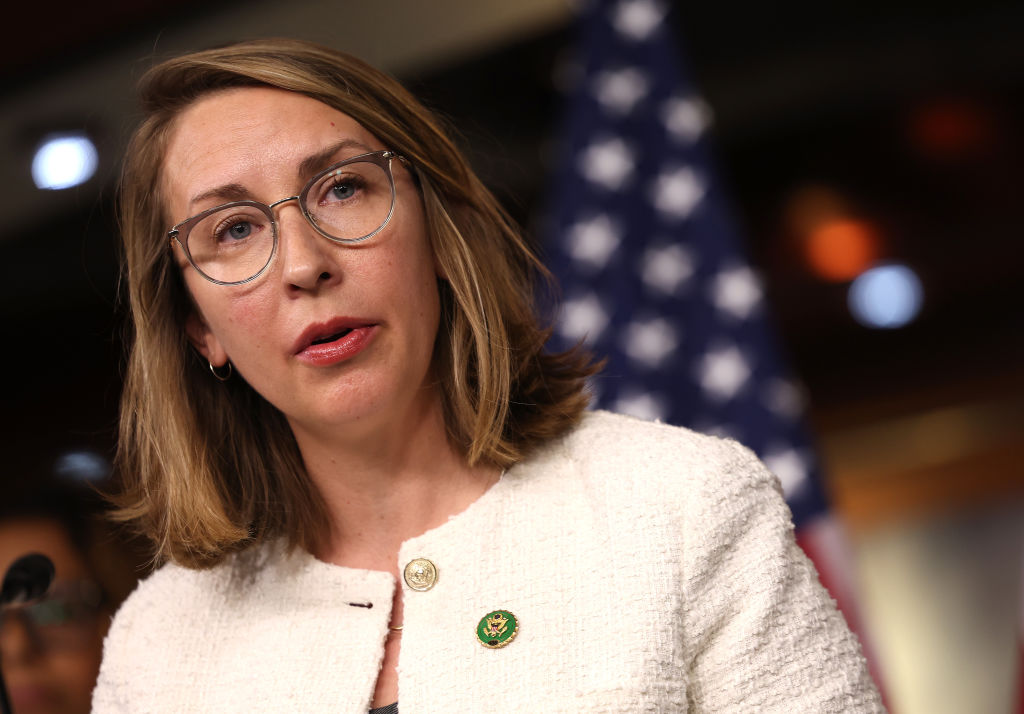Democratic Rep. Hillary Scholten’s constituents began calling her with concerns soon after the New York Times reported details last month of migrant child laborers working dangerous, often grueling jobs, including at a facility in her Michigan district. Since then, Scholten teamed up with Republican Rep. Nancy Mace of South Carolina to write a bill increasing the civil penalties—tenfold in some cases—for companies that break child labor laws.
Their bill is only two pages long and has one focus. Current federal law (passed in 1938) caps the maximum fine companies can incur for a child labor violation at $15,138 unless the violation leads to serious injury or death, which can bump the fine to $68,801. Scholten and Mace’s Justice for Exploited Children Act would raise those to $132,270 and $601,150, respectively. It would also institute new minimum fines for violations: $5,000 for any violation and $25,000 for those resulting in serious injury or death. The fines would rise and fall in correlation with inflation.
“This is not a controversial piece of legislation,” Scholten said in a press release about the bill. “It is a commonsense, bi-partisan one.”
“As a mother, it’s heartbreaking to see stories of children subjected to illegal work conditions here in the United States,” Mace said about the legislation in the announcement. “It is our responsibility to protect children and ensure they are not subjected to the exploitation of child labor.”
State laws vary, but federal child labor laws generally prevent children younger than 16 from working in many occupations, and set guardrails about how many hours and in what kind of occupations children 16 and up can work. The Times report found at least 100 migrant child workers in 20 states working illegally. One of them was 15-year-old Carolina Yuca, a Guatemalan migrant who worked a night shift at Hearthside Food Solutions in Grand Rapids, Michigan, packaging cheerios. A dozen children had been killed on job sites since 2017, while others suffered injuries. Many of the children had migrated from Central America worked to pay off debts to their sponsors.
“We’re not talking about a high school kid with a paper route,” Scholten said at a press conference Wednesday. “We’re talking about keeping 6-year-olds out of slaughter houses.”
It’s unclear how large the child labor problem is in the United States, as The Dispatch has previously reported. In the wake of the reports, the Labor Department and Health and Human Services Department launched an interagency task force to investigate factories, suppliers, and middle-men staffing agencies. It also said it would work on better tracking for children released to sponsors in the United States and informing sponsors about U.S. labor laws.
“There are willing, eligible, safe grown-up workers around the world ready and willing to come to the United States,” Scholten said in the hopes that immigration legislation will also address the issue. “We just have to provide the legal vetting and pathways to make it happen.”
But an overhaul of the country’s immigration seems all but impossible in the current Congress. Scholten and Mace’s bill, if it advances, would likely to pass as a rider to a larger, end-of-year funding package. It has no Senate sponsor as of yet, though Scholten’s office has contacted the Senate Education and Workforce Committee about it.
Earlier this month Democratic Sen. Brian Schatz and several cosponsors introduced a child labor bill that would also increase civil penalties. But it additionally would establish criminal penalties for “a repeat or willful violation of child labor laws” to include a fine and a year in jail. It’s unclear whether that bill will gain any GOP support.
Scholten considered the criminal penalties element but told the Detroit Free Press she didn’t want to risk bogging her bill down.
“This bill is not the end all,” she said. “It is a step to get everyone to come to the table.”






Please note that we at The Dispatch hold ourselves, our work, and our commenters to a higher standard than other places on the internet. We welcome comments that foster genuine debate or discussion—including comments critical of us or our work—but responses that include ad hominem attacks on fellow Dispatch members or are intended to stoke fear and anger may be moderated.
With your membership, you only have the ability to comment on The Morning Dispatch articles. Consider upgrading to join the conversation everywhere.